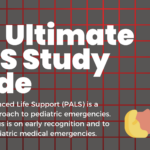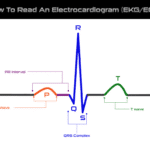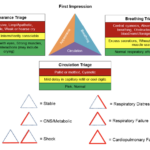
Research shows that only 10 percent of 911 calls involve a child. Yet first responders and, naturally, emergency room workers will inevitably find themselves confronted with a seriously ill infant or child.
Furthermore, the rapid evaluation of a sick child demands that emergency personnel are fluent in various response techniques, like pediatric advanced life support training (PALS) and pediatric emergency assessment recognition (PEARS).
PALS and PEARS training may seem similar at first, but it is important to note that there are several key differences between the two programs. Let’s take a look at the differences between PEARS vs PALS.
What Is PALS Training?
PALS training entails basic pediatric assessment, life support and resuscitation for seriously ill or injured children. It is essential for medical personnel who work with children and ensures a medical professional possesses the skills and know-how needed to support kids in life-threatening situations.
What does PALS stand for?
PALS stands for “Pediatric Advanced Life Support.”
During a PALS class, an individual will examine a wide range of topics, including:
- How to take a systematic approach to pediatric assessment
- How to manage pediatric respiratory emergencies
- The importance of vascular access (along with intraosseous training)
- Airway management
- PALS pharmacology terms and definitions
- Review of basic life support (BLS)
In addition, PALS training usually features many pediatric case studies and simulations, ensuring an individual can become a pediatric resuscitation team leader.
An individual will need to enroll in a PALS initial class to become PALS-certified. Upon successful completion of this course, a student will receive a PALS certification card that will remain valid for two years.
For those who need to renew their PALS certification, PALS renewal or update courses are available. However, it is important to enroll in one of these classes before PALS certification expires. If PALS certification lapses, an individual will need to enroll in an initial PALS certification class to renew his or her certification.
What Is PEARS Training?
PEARS training teaches healthcare and medical personnel how to recognize specific conditions like respiratory distress, shock and cardiac arrest. It is ideal for healthcare providers such as school nurses, surgical nurses, and medical aids who infrequently sees critically ill infants or children, but need to be able to identify and address pediatric emergencies.
What does PEARS stand for?
PEARS stands for “Pediatric Emergency Assessment Recognition & Stabilization.”
As part of a PEARS class, an individual will examine the following topics:
- The importance of taking a systematic approach to basic pediatric assessment
- How to recognize and resolve respiratory and cardiac arrest issues
- How to identify and minimize circulatory issues
- Shock recognition and management
- Pediatric chain of survival
- Overview of BLS
Like PALS training, a PEARS class may include pediatric case studies and simulations. Ultimately, a PEARS class will enable an individual to gain the skills and confidence needed to provide crucial assistance in pediatric emergencies.
Which Is Better: PALS or PEARS Training?
Medical personnel are unlikely to need both PALS and PEARS training. In many instances, a medical professional will require either PALS or PEARS training based on his or her day-to-day role. Ultimately, your employer will indicate which course is needed.
PALS training emphasizes pediatric resuscitation team leadership. As such, a PALS class teaches students how to identify the correct course of action in pediatric emergencies and direct team members. PALS students also receive team leadership testing.
Comparatively, PEARS training ensures an individual understands how to recognize and manage pediatric emergencies. A PEARS class teaches students how to provide support during the treatment of sick or injured pediatric patients. The class does not teach students how to take leadership roles in pediatric resuscitation teams; instead, PEARS training explores ways that individuals can contribute to a pediatric resuscitation team’s success.
Medical personnel who may require PALS training include:
- Doctors
- Firefighters
- Paramedics
- Nurses
Conversely, medical professionals who may require PEARS training include:
- Emergency medical technicians (EMTs)
- Medical and surgical nurses
- School nurses
Both PALS and PEARS programs involve learning stations to reinforce skills, course videos and hands-on training. PALS classes, meanwhile, are co-branded with the American Academy of Pediatrics. If you are still unsure which course to take, we recommend taking PALS, this certification will cover everything that the PEARS course covers as well as additional items that a healthcare provider may need to direct a team in a pediatric emergency.
Ready to sign up for a PALS or PEARS course? Contact SureFire CPR today, and we’re happy to help you enroll in a PALS or PEARS class that will exceed your expectations.
Give us a call to find out which program is right for you. Our offices in Orange County are here to serve you for both PALS and PEARS.









